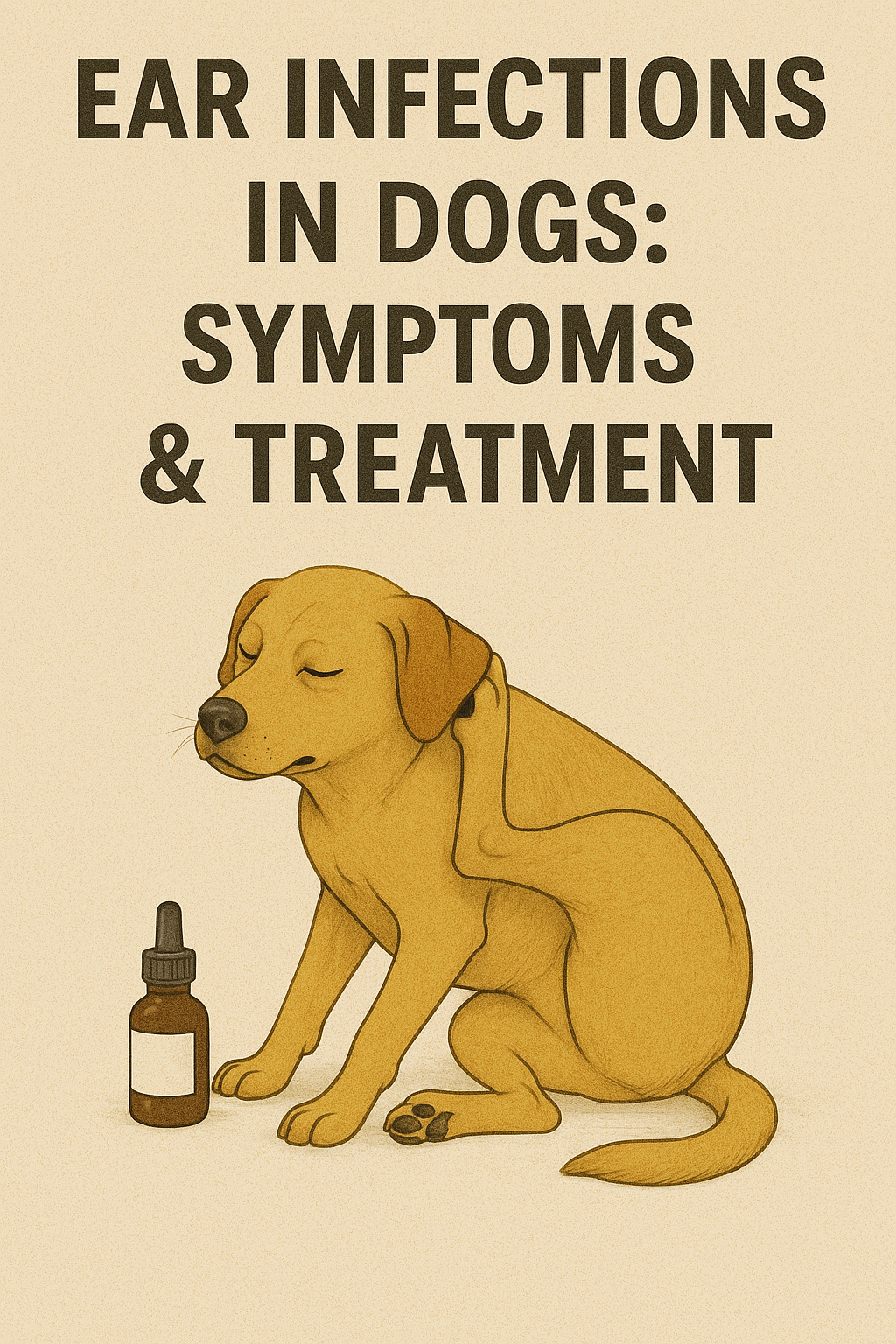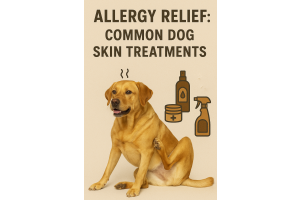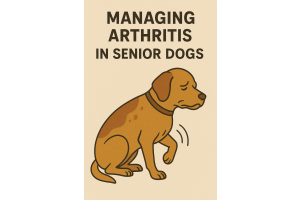Ear Infections in Dogs: Symptoms & Treatment

Ear infections are among the most common reasons for veterinary visits. While they can affect dogs of all ages and breeds, some are more prone to developing chronic or recurring ear issues.
Understanding the signs of dog ear infections, their causes, and treatment options is crucial for keeping your furry companion healthy and comfortable. In this article, we’ll explore everything you need to know about ear infections in dogs and how Cessna Lifeline Veterinary Hospital can help.
Why Do Dogs Get Ear Infections?
A dog’s ear canal is L-shaped, making it an ideal environment for moisture and debris to get trapped, leading to infections. Dogs with floppy ears or those who love swimming are particularly susceptible.
The most common types of ear infections in dogs include:
-
Otitis externa: Infection of the external ear canal (most common).
-
Otitis media: Middle ear infection, usually resulting from an untreated outer ear infection.
-
Otitis interna: Inner ear infection, which can affect balance and hearing.
Causes of Ear Infections in Dogs
Several factors contribute to ear infections:
Allergies
Food allergies or environmental allergies (like pollen, dust, or mold) can cause inflammation and excess wax production.
Excess Moisture
Dogs who swim or get frequent baths often develop "swimmer's ear," where trapped moisture promotes bacterial and yeast growth.
Parasites
Ear mites, more common in puppies, can cause severe irritation and infections.
Foreign Bodies
Grass seeds, dirt, or other debris can enter the ear canal, causing inflammation and secondary infection.
Hormonal Imbalances
Conditions such as hypothyroidism or Cushing’s disease can predispose dogs to chronic ear infections.
Anatomy
Breeds like Cocker Spaniels, Basset Hounds, and Labrador Retrievers are more at risk due to their ear structure.
Signs of Ear Infections in Dogs
Early detection is essential to prevent complications. Watch for these common dog ear infection signs:
-
Head shaking or tilting
-
Frequent scratching or pawing at the ear
-
Redness and swelling inside the ear
-
Unpleasant odor coming from the ear
-
Dark brown, yellow, or bloody discharge
-
Crusting or scabs in and around the ear
-
Sensitivity or pain when touching the ear
-
Loss of balance or unusual eye movements (in severe cases)
If you notice any of these signs, consult your veterinarian at Cessna Lifeline Veterinary Hospital promptly.
How Ear Infections Are Diagnosed
Proper diagnosis is crucial for effective treatment. At Cessna Lifeline Veterinary Hospital, a veterinarian will:
-
Perform a thorough physical exam: Check both ears and assess overall health.
-
Use an otoscope: To examine the ear canal and eardrum for debris, inflammation, or foreign objects.
-
Take samples: Ear swabs are examined under a microscope to identify bacteria, yeast, or mites.
-
Conduct culture and sensitivity tests: In recurrent or severe infections, these tests help determine the most effective antibiotics.
Treatment Options for Dog Ear Infections
Treatment varies depending on the cause and severity. Common approaches include:
Cleaning the Ear
A gentle, thorough ear cleaning helps remove debris and discharge. It’s crucial to let professionals do this, as improper cleaning can worsen the infection or damage the eardrum.
Medications
-
Topical treatments: Antibiotic and antifungal ear drops to eliminate infection.
-
Oral medications: In severe or chronic cases, oral antibiotics or antifungal drugs may be prescribed.
-
Anti-inflammatory medications: To reduce swelling and discomfort.
At Cessna Lifeline Veterinary Hospital, your veterinarian will create a customized treatment plan and demonstrate proper ear drop application.
Surgical Options
In chronic, severe cases where infections don’t respond to standard treatment, surgical intervention may be necessary. One common procedure is a total ear canal ablation (TECA), which involves removing the diseased ear canal. This is considered a last resort and performed only when absolutely necessary.
Home Care and Follow-Up
Proper aftercare is crucial to prevent recurrence. Follow your veterinarian’s instructions carefully:
-
Complete the entire course of prescribed medications, even if symptoms improve early.
-
Avoid getting water in the ears during baths or swimming.
-
Use only vet-recommended ear cleaners or solutions.
-
Schedule follow-up visits to monitor healing and reassess the ear canal.
Preventing Ear Infections in Dogs
While not all infections can be prevented, some proactive steps reduce the risk:
Regular Ear Checks
Check your dog’s ears weekly for redness, odor, or debris.
Keep Ears Dry
After baths or swimming, gently dry your dog’s ears using a soft towel.
Clean Ears Properly
Use veterinarian-approved ear cleaners and never insert cotton swabs deep into the ear canal.
Maintain Overall Health
Manage allergies, maintain a balanced diet, and keep up with regular veterinary visits to prevent underlying conditions.
Why Choose Cessna Lifeline Veterinary Hospital?
When it comes to ear health, expertise and gentle handling make a big difference. At Cessna Lifeline Veterinary Hospital, you can expect:
-
Experienced team: Skilled in diagnosing and treating both acute and chronic ear infections.
-
Advanced diagnostic equipment: Ensures accurate assessment and safe cleaning.
-
Personalized care plans: Tailored to each dog’s unique needs and lifestyle.
-
Compassionate handling: Stress-free visits for even the most anxious pets.
When to Seek Immediate Veterinary Attention
Certain signs indicate a more serious problem requiring urgent care:
-
Severe head tilt or circling
-
Loss of balance or falling
-
Rapid eye movements
-
Uncontrollable pain or continuous crying
-
Profuse bleeding from the ear
In such cases, contact Cessna Lifeline Veterinary Hospital or an emergency veterinary service right away.
Final Thoughts
Ear infections can be frustrating for both dogs and their owners. Fortunately, with early recognition of dog ear infection signs, proper veterinary care, and diligent at-home support, most dogs recover well and enjoy healthy, comfortable lives.
If your dog is showing signs of an ear problem, don’t wait. Schedule a consultation with the caring experts at Cessna Lifeline Veterinary Hospital today — because your dog deserves the very best care, from ears to tail.






